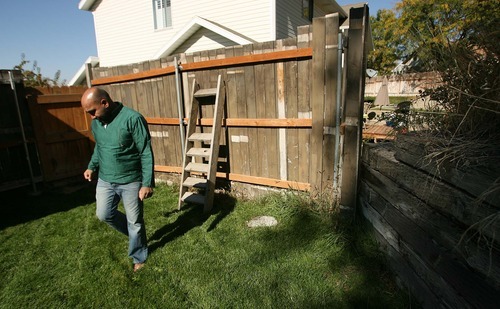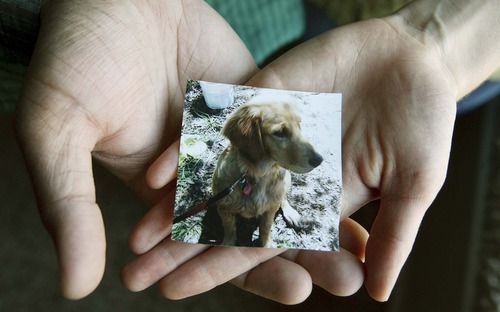This is an archived article that was published on sltrib.com in 2012, and information in the article may be outdated. It is provided only for personal research purposes and may not be reprinted.
A state senator said he plans to sponsor legislation to ensure neighbors are notified when nearby residents are having their homes treated with harmful pesticides.
"We're not sure where it's going to go," said Sen. Gene Davis, a Salt Lake City Democrat and member of the Senate's Agriculture, Natural Resources and Environment Committee. "But it's time to have that discussion."
Davis said Wednesday that he was spurred into action after reading The Salt Lake Tribune's account of the plight of his neighbor, Elva Jensen, and a family in North Salt Lake whose healthy dog dropped dead immediately after a pest-company worker sprayed a neighbor's yard.
Jensen spent the summer pressing the state Pesticide Office to deal with her complaint that her neighbor's lawn-care company had allowed a pesticide containing likely carcinogens to drift into her yard by spraying when it was too windy. Three months later, the company and the applicator were fined $100 apiece.
"I think that it's time," said Jensen of the proposal to update Utah's pesticide law. "We need more compliance specialists, and I hope the people of Utah agree."
Davis hopes his bill will spark a discussion among lawmakers about pesticide notification, which is currently optional in Utah.
In New York, decade-old legislation requires pest companies in counties that have opted-in to give 48 hours notice to neighbors within 150 feet of a home where pesticides will be sprayed over the lawn, garden beds or trees. Although it does not apply to government or agriculture, the law has prompted a big switch to less toxic soaps and oils all over the state, according to one advocate of the New York Neighbor Notification Law.
The Salt Lake City senator noted that advocates needed years to make the case for the law in the New York. And he sees a years-long time frame for something similar in Utah. A homegrown version could mean requiring signs on pesticide-treated yards, stiffer fines for violators and more is yet to be seen.
He said details of the legislation will be worked out before lawmakers begin their annual meeting in January.
Between now and then, the Utah Department of Agriculture and Food, which oversees pesticide safety in the state, is expected to propose changing notification requirements. The new regulation would require commercial applicators to post signs on residential lawns following a pesticide treatment. In a statement, the agency said the senator had discussed the state's notification requirement with department Director Leonard Blackham.
"Such a sign should contain an easy-to-read statement that offers a notice that the lawn has undergone such a treatment," the statement said. "Many pesticide labels already contain wording directing the applicator to not allow people or pets onto the area until the material has dried."
The Agriculture Department said it would conduct a public meeting regarding the proposed rule change but did not say when that is scheduled.
In the meantime, Jensen has been contacted by others concerned about Utah's pesticide law and its enforcement. Like her, many cite the 2010 deaths of 4-year-old Rebecca Toone and 15-month-old Rachel Toone, in Layton. The sisters died after application of a pest-control chemical near their home to get rid of voles.
Said Davis: "This is really a constituent issue that needs to be addressed."
Twitter: @judyfutah —
Feugiat euismod ut wisi sed diam
Olendrem eugiamet dio dip et verit, vulpute cor amet velent am volesto odiamcommy nim dipit ut ullutet prate duisi. Rud dolobor suscidunt am, con heniamet illum nismodolore coreet. › XX









